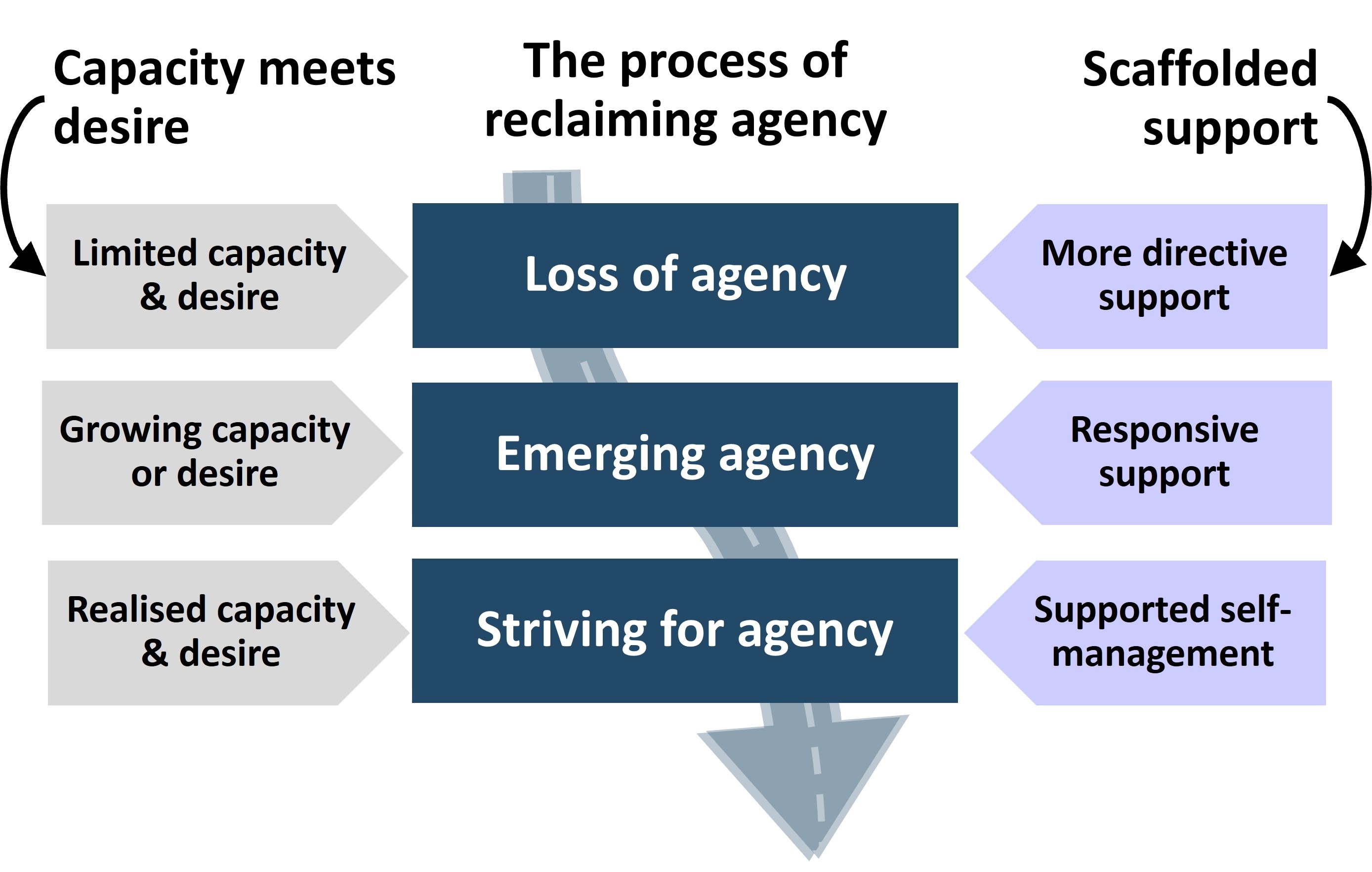Reclaiming Agency in Care Decisions and Barriers From the Perspectives of Individuals With Acquired BrainInjury and Their Family Members
Published 8th July 2024
This study explored experiences of self-advocacy for individuals with acquired brain injury (ABI) along with factors that helped or hindered their ability to have a say in their care. Researchers interviewed 12 people with ABI and 13 family members at two points: just before hospital discharge and four months later. They found that self-advocacy involves a process of reclaiming agency which often starts with initial confusion (loss of agency), but improves over time as people begin to question and understand their current care (emerging agency), and then become proactive in directing their future care (striving for agency).
Strategies for supporting self-advocacy skill development include initially providing more directive and responsive support (e.g., clear and consistent information and the opportunity to ask questions), and then supported self-management in which individuals are given choices and encouraged to make decisions through a collaborative partnership with service providers and their family and support networks.

Citation
Ownsworth, T., Bates, A., Watter, K., Morgan, C., Bell, R., Griffin, J., Turner, B., Kennedy, A., Kendall, M., Adams, B., Gibson, E., Hakala, T., & Mitchell, J. (2024). Reclaiming Agency in Care Decisions and Barriers From the Perspectives of Individuals With Acquired Brain Injury and Their Family Members. Health Expectations, 27(3). https://doi.org/10.1111/hex.14109
Authors
Publication Type
Journal Article
Back to Project


